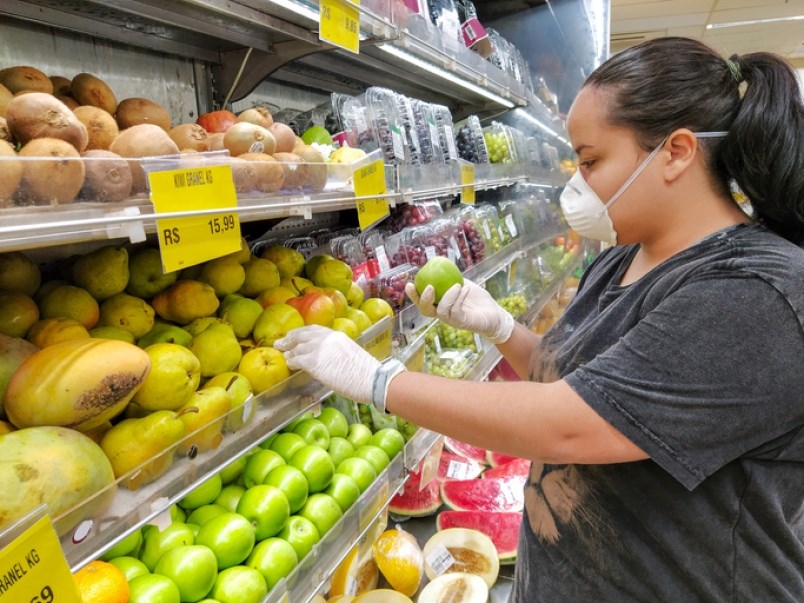A popular grocery store with locations across Metro Vancouver is asking customers to wear masks while grocery shopping to avoid the spread of COVID-19.
T & T Supermarket has posted the request for patrons to begin wearing masks starting May 11.
The announcement on its website puts the store in the forefront as most only require workers to wear personal protective equipment (PPE). Until now, customers haven’t been asked to do so.
However, Canada’s top health official has stated that masks can stop the spread of COVID-19.
In early April, Dr. Theresa Tam with the Public Health Agency of Canada said Canadians can use non-medical masks along with social distancing measures to limit the transmission of the deadly virus.
T & T’s request comes as U.S. Costco shoppers have been told to wear masks although there is no word yet on whether Canadian shoppers will be asked to do the same.
T & T was one of the first stores in Metro Vancouver where clerks started wearing face masks as early as February as the coronavirus first made its appearance in B.C. More recently, the chain has rolled out temperature checks for customers as they pass through the front doors.
But the broader community is slower to take up mask-wearing.
In part, it could be because PPE is hard to get and is being safeguarded for health care workers, so people have to figure out other ways to cover their face safely. But it’s also a question of government policy and long-standing norms around what constitutes appropriate behaviour to safeguard public health.
Widespread use of face masks in public has been recommended by several governments across the world, including in the U.S., and is culturally ingrained in many East Asian cultures like Taiwan, China and South Korea.
And this week, the Green Party of Canada called on federal and provincial health authorities to recommend face masks.
On Monday, May 5, B.C. provincial health officer Dr. Bonnie Henry laid out modelling for the spread of the virus in the province, and called on British Columbians to maintain physical distance as we move towards the summer.
“Our challenge and our work together is to find that sweet spot – somewhere around increasing our contacts by at least half, or twice as many as we have now, but without allowing those opportunities for rapidly exponential growth of the virus in our communities,” said Henry.
In getting to that “sweet spot,” Henry presented a hierarchy of controls as a framework to reduce transmission hazards, with the most effective control, physical distancing, doing much more to prevent the spread of the virus than masks.
— with files from Stefan Labbé
Read more from the Tri-City News



